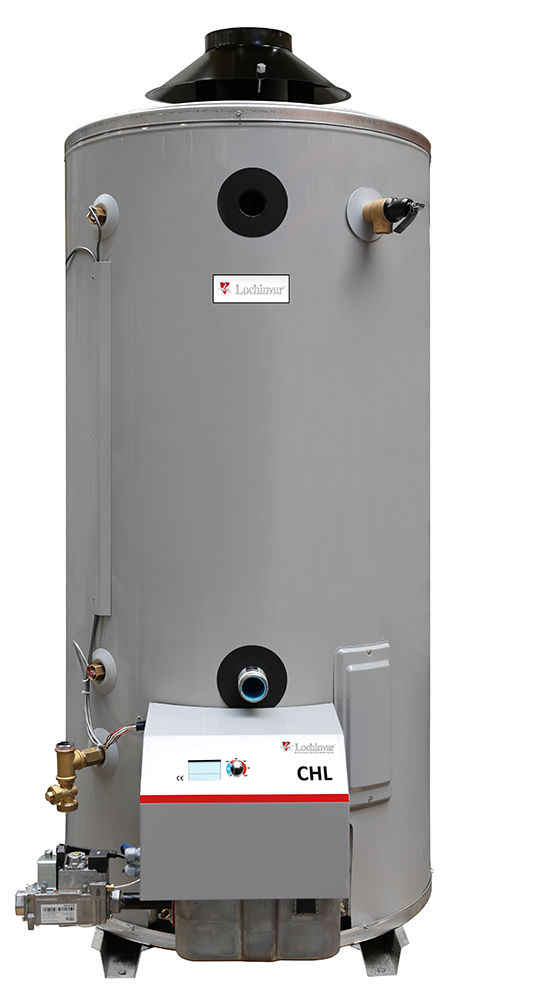Steel storage vessels from Lochinvar

Lochinvar has launched a new low NOx emission version of the Charger direct gas-fired commercial water heater to help meet air quality targets.
The Charger water heaters, which have been on the UK market for more than 40 years, help meet the new maximum NOx limits imposed on direct gas-fired heaters by ErP regulations.
There are three new models in the Charger Low NOx range with storage capacities from 294 to 328 litres and hot water recovery rates from 850 to 1,600 litres/hour which make it the highest output water heater of its kind in the UK. The NOx emissions are between 33mg/kWh and 45mg/kWh depending on the model which is below the 56mg/kWh maximum on the new regulations.
Each of the three models can replace any manufacturer’s comparable atmospheric water heaters and comes with the option of low-level draught diverters to ease the installation process.
Charger water heaters are built using an enamel-lined steel storage vessel, enabling them to operate at pressures of up to 8 bar. They include sacrificial magnesium anodes to provide cathodic protection and the burner sits at the base of the unit.
Liam Elmore, Lochinvar sales director, says: “The most convenient and cost-effective way to replace an old non-condensing water heater is with a similar product and, by offering low NOx versions, we can ensure customers also comply with ErP legislation and the UK’s wider ambition to improve air quality.”







